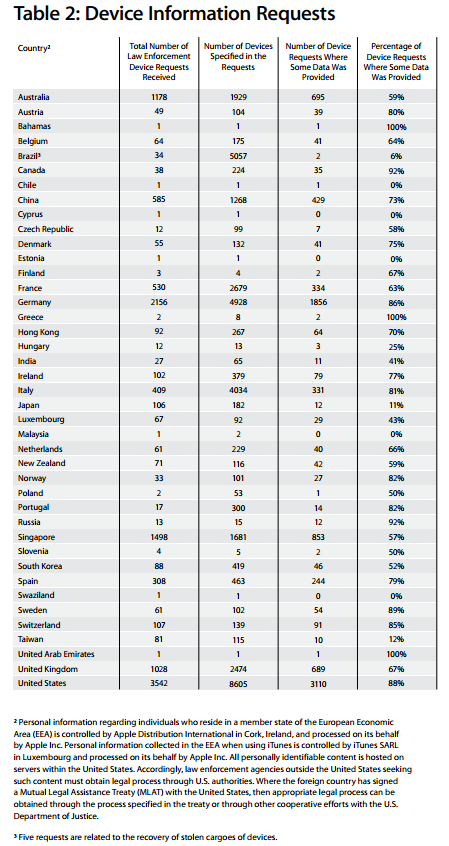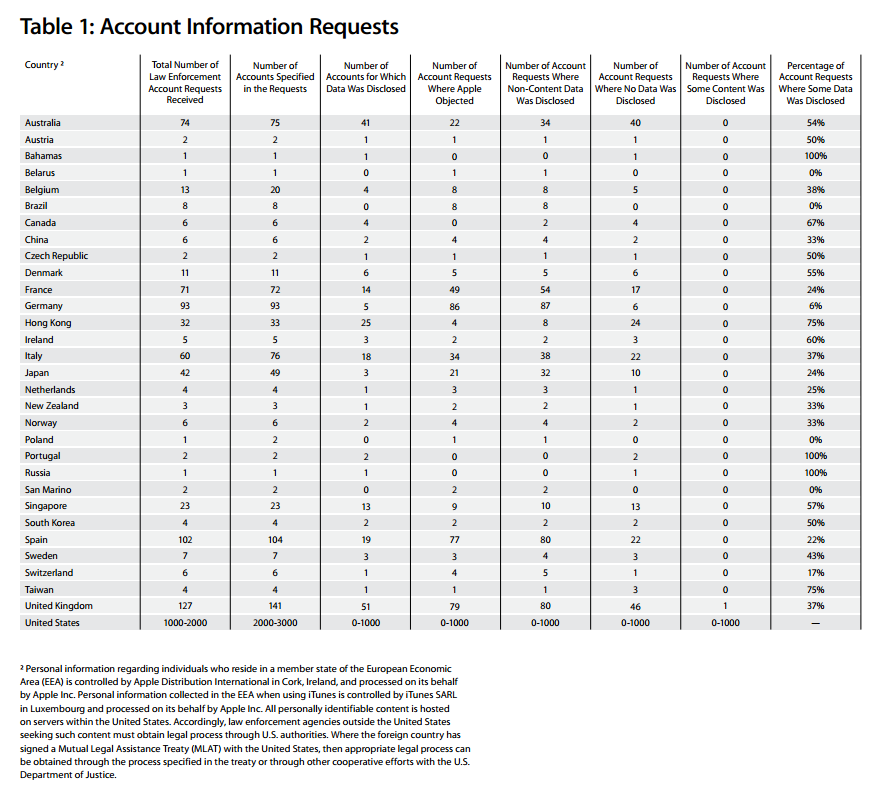Apple Government User Data Requests For 2013 Revealed
Today Apple has released a form which shows the most recent round of government requests for data from Apple on their user base. What you're going to see is two charts, one that shows account requests, the other that shows device requests, the both of them detailed to a point by Apple insofar as what they can show the public and how they've been asked to present this information. Of course the U.S. government would rather not see any of this information released, and as such, Apple notes what restrictions have been placed on the data they're sharing.
The information Apple shares this week is as follows: "the account requests and device requests Apple received from law enforcement agencies between January 1, 2013, and June 30, 2013." The difference between device requests and account requests is simple. With a device request, the business is generally about lost or stolen devices – or when a shipment of stolen devices is found. Account Requests cover pretty much everything else – this is what Apple describes as the data you don't generally expect the government to be attaining as it, more or less, belongs to you, the private citizen.
"Only a small fraction of the requests that Apple receives seek personal information related to an iTunes, iCloud, or Game Center account. Account-based requests generally involve account holders' personal data and their use of an online service in which they have an expectation of privacy, such as government requests for customer identifying information, email, stored photographs, or other user content stored online. Apple logs these as account requests." – Apple
Apple suggests that they're aiming to release as much information on government requests for user data as possible, in as open a manner as possible. To this end, they've released a full PDF on Government Info Requests. This document includes the following paragraph.
"Like many companies, Apple receives requests from law enforcement agencies to provide customer information. As we have explained, any government agency demanding customer content from Apple must get a court order. When we receive such a demand, our legal team carefully reviews the order. If there is any question about the legitimacy or scope of the court order, we challenge it. Only when we are satisfied that the court order is valid and appropriate do we deliver the narrowest possible set of information responsive to the request." – Apple
In other words – Apple isn't about to be seen as shaking hands behind-the-scenes with organizations like the NSA. You'll find that the numbers included in the charts shared today do not differentiate between law enforcement agencies, per demand from the U.S. government. You'll also find the requests rounded to the nearest 1000, another part of the demands of the U.S. government. You'll see much more specific numbers appearing in every single other country category.
Stick around the Apple hub here on SlashGear for more data as it appears, we'll be following this particular push for transparency though, deep dives commencing.


